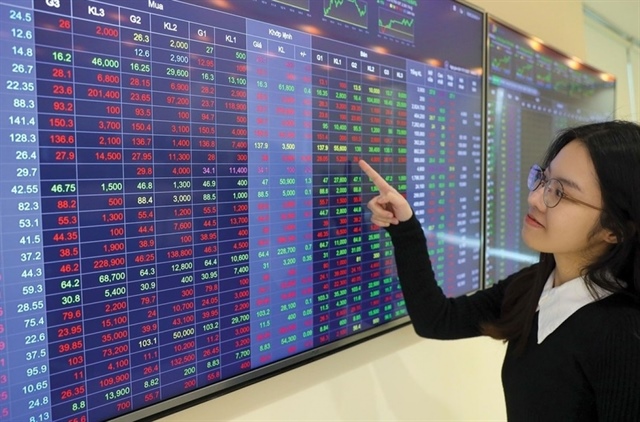UPCoM tightens control over listed companies
UPCoM tightens control over listed companies
A new set of regulations will be imposed on companies either looking to be or already listed on the Hanoi Stock Exchange’s (HNX) Unlisted Public Company Market (UPCoM), increasing the level of inspection and monitoring on these entities and preventing investors from buying unqualified stocks by underperforming businesses.

The HNX issued the Decision 455/QD-SGDHN last week, which added two more notches to the discipline scales for listed companies. From now on, in addition to the previous penalties of temporary suspension of stock trade and limitation on traded stocks, two more sanctions in the forms of an initial reminder and an ultimate permanent ban from trading on the UPCoM will be applicable for all companies across all categories.
The reason for this new addition for the UPCoM’s regulations is the rapid expansion of the stock market. In less than two years from December 2015 to June 2017, the amount of listed companies has increased by 2.2 times, from 256 to 571 stocks. Market capitalisation is currently VND440 billion (US$19.6 milllion) and market’s liquidity is now VND200 billion ($8.9 million) per session.
As such, the actuality of listed companies on the UPCoM has become much more complex, with charter capitals ranging from hundreds of thousands dollar to billions of dollar, with huge corporations such as the Airports Corporation of Viet Nam, the Thermal Power Joint Stock Company in Hai Phong or the Viet Nam Steel Corp.
However, this also means the quality of business entities would fluctuate greatly across categories, from extremely high return to hinging on the verge of severe loss. Under the situation, it is necessary for the authorities to increase the complexity of management and regulations, in order to improve transparency and protect investors on the market, hence the issuance of Decision 455.
Out of the four discipline methods, the slightest which is simply an initial reminder, is used for those who fail to publish their annual or biannual financial reports 30 days later than the HNX’s set date.
The next level of temporary trade suspension for a maximum of five sessions is applied should the company show any of the following anomalies: suspicious fluctuation of stock price and amount traded, failure to publish the company’s annual financial report 45 days later than required and annual general meeting’s minute six months since the end of the financial year, as well as withholding any changes in business performance.
The third discipline tier, limitation on stock trade, is implemented in case the company’s owner’s equity drops below zero, its production ceases for more than one year, its latest financial report spots any incongruence, its stocks become delisted or the company itself fails to amend the cause of its stocks’ delisting.
The final and most severe discipline method of stock trade ban is reserved for any company that fails to identify its headquarter as the same address given in its business certificate, or any company exposed by the HNX and other authorities to have committed frauds in their trade portfolio including false information affecting investors’ decisions and violation of information disclosure regulations on the stock market.
Most recently, on June 28, 2017, the HNX announced limitations on stock traded for seven companies on the UPCoM, in which they are only allowed to be traded during the weekly Friday session with a total amount of 91.2 million stocks, which equals to VND912 billion ($40.6 million).
The HNX said they would allow these companies, whose stock codes are listed as PPG, TNM, MCI, MMC, DCI, PXI and HBI, to resume normal trading as soon as they fix the cause of their failure to publish the relevant information regarding their company performance and financial reports.
Furthermore, the decision added to the existing regulations on stock price fluctuation to handle special cases in which newly listed stocks’ referential price is the same as its ceiling and floor prices, or when the referential price is as small as VND100 ($0.004).




























